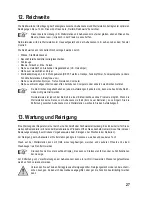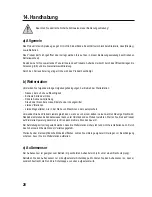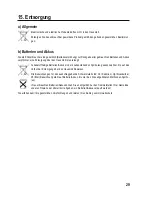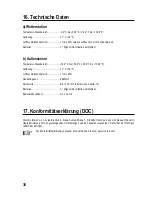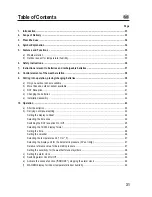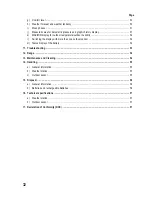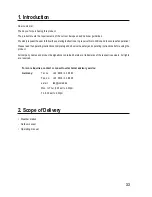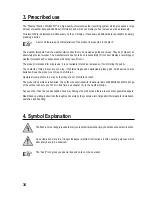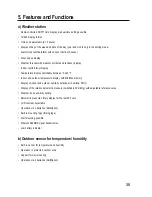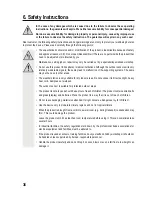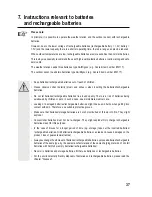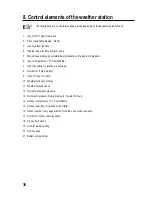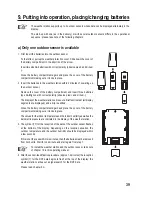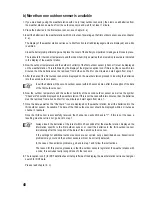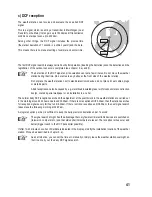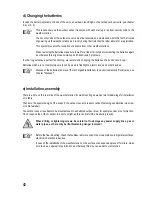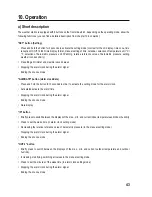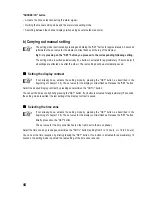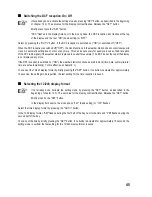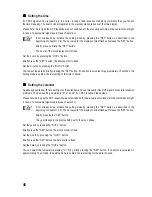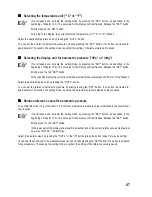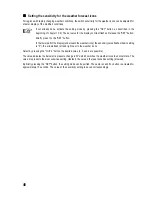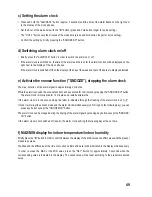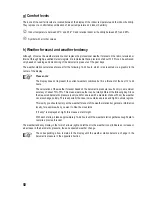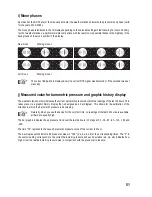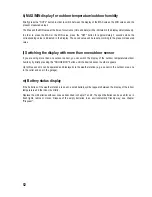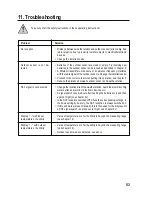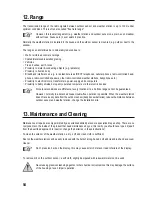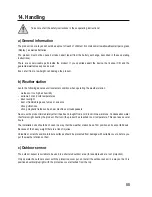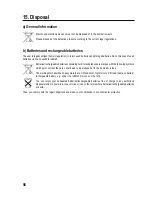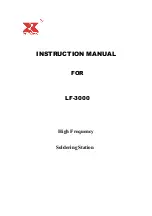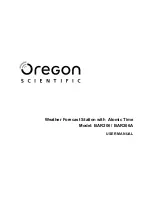
41
1500 km
2000 km
c) DCF reception
The weather station can receive and evaluate the so-called DCF
signal.
This is a signal which is sent by a transmitter in Mainflingen (near
Frankfurt on the Main). Its range is up to 1500km and if transmission
conditions are ideal even up to 2000km.
Among other things, the DCF signal includes the precise time
(theoretical deviation of 1 second in a million years!) and the date.
This means there is no manual setting of summer and winter time.
The first DCF signal search is always carried out by fist operation (inserting the batteries) once the detection and the
registration of the outdoor sensors is completed (see chapter 9. a) and b).
The detection of the DCF signal and its evaluation can last a few minutes. Do not move the weather
station during that time. Do not actuate any button at the front side of the weather station.
Do not place the weather station next to electric/electronic devices; do not place it near cables, plugs
or metallic parts.
A bad reception can also be caused by, e.g. metallized insulated glass, reinforced concrete construction
design, coated special wallpaper or an installation in a cellar.
The normal daily DCF reception search and the adjustment of the quartz clock in the weather station are carried out
in the morning around 02.00am and around 03.00am. If there is no reception until 03.00am, then the station searches
for reception signals every full hour until 6.00am. If there is still no reception until 06.00am, the next signal search
takes place the following morning at 02.00am.
A single reception per day is sufficient to keep the daily precision deviation under 1 second.
The signal search at night has the advantage that very few electric/electronic devices are switched on
(television, computer etc.) and that atmospheric disorders are lesser. The reception is thus surer and
better (bigger reach to the DCF transmitter possible).
If after 10-20 minutes no current time/date is indicated in the display, modify the installation location of the weather
station. Proceed as described in chapter 9. a).
As an alternative, you can set the time etc. manually or simply leave the weather station overnight, so
that it can carry out the daily DCF signal search.

